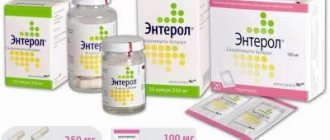Ginger tea is a healthy and aromatic drink with a tart taste and many beneficial properties. Of course, there are situations when you should think about whether you can drink such a drink. Such situations include pregnancy, because at this time a woman’s body undergoes serious changes and may react negatively to the consumption of certain foods. Is ginger tea a forbidden product during pregnancy, or will such a drink be beneficial for the expectant mother?
Can pregnant women use ginger root or not, why?
It is impossible to unequivocally answer the question of whether ginger is good for pregnant women. This is due to the fact that ginger, despite the abundance of nutrients, has contraindications. It is believed that some properties of the plant can negatively affect the body of the expectant mother (how does ginger affect a woman’s body?). There is a theory that when ginger is consumed, the tone of the uterus increases, which can be detrimental to the fetus. It should be noted right away that this is just an assumption, but it is better not to take risks if a woman is predisposed to miscarriages.
We suggest you find out from the video whether you can take ginger during pregnancy:
In what cases is ginger recommended for pregnant women?
If nausea greatly bothers a woman, the spice can relieve the condition. The root can also be used to treat colds, since medications are contraindicated in this case.
Cold
The benefits of ginger have been proven in the treatment of acute colds. You should not drink teas with spice only if a woman has a high fever.
Tea to relieve cold symptoms:
- Grate ginger with peel.
- Pour 2 tablespoons of powder into a thermos and add hot water (1 liter).
- Leave for 30 minutes.
If a woman has not used the root of the plant before, it is recommended to start with a smaller amount - 1 tablespoon of powder per liter of water. Tea should be distributed throughout the day - 3-5 cups. However, if you feel worse, you should stop taking it.
Nausea
If nausea does not occur every day, then you can get rid of it by eating pickled ginger. It should be eaten only in small quantities - up to 5-6 leaves at a time and only if the woman does not have a tendency to edema.
Allowed only in the early stages.
Toxicosis
In case of severe toxicosis, before the first meal, you should drink a cup of classic tea with ginger:
- liter of water;
- 2 tablespoons of grated root and lemon;
- add a small amount of honey.
The amount of powder should be adjusted depending on whether the woman has used the spice before or not. In order not to provoke vomiting, you should start with a minimum amount - 1 tablespoon.
For immunity
Due to the content of vitamins, iodine, and zinc in the plant root, pregnant women should consume the product in order to increase the body's resistance to viruses. To do this, prepare a tincture:
- You will need a liter of water and 100 grams of fresh and crushed plant.
- Pour boiling water over the gruel and leave for 1 hour.
- Use the tincture in small portions - 150 ml per day.
Chemical composition of the product
This plant is distinguished primarily by its high content of useful substances, due to which it is highly valued both in cooking and in medicine. In its chemical composition, ginger contains:
minerals (magnesium, phosphorus, calcium, iron, sodium, zinc, potassium, chromium, manganese, silicon;- vitamins (A, B1, B2, B3, C, E, K);
- fatty acids (oleic, linoleic, caprylic);
- proteins;
- amino acids;
- fats;
- carbohydrates;
- gingerol is a special resinous substance that gives ginger its spicy taste and anti-inflammatory properties.
It is not surprising that with this composition, ginger has a lot of beneficial properties. However, doctors advise pregnant women to be careful with this miracle root . Particular delicacy should be shown when meeting ginger for the first time, because... there is a possibility of developing an allergy, and if the expectant mother has not tried this spice before conception, then there is no point in starting.
Contraindications and harm
The product has a lot of contraindications, and some people may have an allergic reaction.
- You should not use ginger if:
- hypertension;
- inflammation of the mucous membranes of the gastrointestinal tract, hemorrhoids, stomach ulcers, digestive problems (diarrhea) - in this case, one harm is done, the product promotes and irritates intestinal disorders;
- skin diseases;
- proneness to allergies (in this case, it would be better to refuse the product and not take any unnecessary risks);
- liver diseases (liver cirrhosis, hepatitis);
- tumors (there is a tendency for tumors to grow);
- gallstone diseases.
Features of using the root at this time, including in the early stages
In 1st trimester
In the first trimester of pregnancy, ginger helps eliminate the symptoms of early toxicosis. Any smells and tastes can cause nausea and disgust in a pregnant woman, which often leads to exhaustion. The pungent taste and essential oils of ginger give the product the ability to suppress vomiting.
In addition, during this period, a hormonal surge occurs in a woman’s body, which leads to a decrease in immunity and an increased risk of colds or ARVI, which, in turn, is very dangerous for the development of the fetus. The bactericidal, anti-inflammatory and expectorant properties of ginger will help a pregnant woman avoid illness or endure it without complications.
This storehouse of nutrients also helps replenish vitamin reserves and relieve heartburn in pregnant women.
In the 2nd trimester
In the second trimester, toxicosis, as a rule, recedes and is replaced by appetite. Since the fetus is actively growing and requires more mineral, protein, and energy costs, healthy, nutritious nutrition for the expectant mother comes to the fore. Often during this period, women experience a lack of iron in the body. By including iron-containing foods, including ginger root, in your diet, you can increase your hemoglobin levels without the use of medications.
Also, in the second trimester, expectant mothers often experience skin problems due to hormonal changes. Using masks with the addition of ginger root helps normalize the functioning of the sebaceous glands and get rid of troubles.
In the 3rd trimester
In the third trimester, the child becomes of considerable size, which cannot but affect the functioning of the woman’s internal organs. The organs of the gastrointestinal tract, constrained by the fetus, stop working at full capacity, which is reflected in impaired intestinal motility, constipation, and increased gas formation. Eating ginger helps maintain the normal functioning of the digestive system, prevents the development of dysbacteriosis and normalizes the stool of a pregnant woman.
Ginger can also help relieve swelling of the legs and helps prevent varicose veins in the expectant mother due to its blood-thinning effect.
Important! If a pregnant woman is diagnosed with gestosis (late-term toxicosis), it is not recommended to eat ginger root.
How to properly use ginger during pregnancy?
Ginger tea during pregnancy is prepared simply: take 1 tsp. peeled and grated root, pour 1 glass of boiling water and leave for 5 minutes (do not keep it longer, the drink will be too strong). There are other ways to prepare tea, which is used for colds or to relieve nausea during toxicosis.
The pharmacy sells ginger tea in bags, which helps get rid of the symptoms of toxicosis, and tablets. The dosage of the tablets should be selected by a doctor, but no more than 100-200 mg can be taken per day.
In Ayurvedic practice, pregnant women are recommended to take ginger with ghee, which is even added to tea. This product improves the absorption of nutrients from the root and prevents allergic reactions.
Ginger tea for toxicosis and colds
To treat a cold, the drink is prepared as follows: 2 tbsp. l. fresh grated root, pour 1 liter of boiling water and leave for half an hour. Then the mixture is filtered, 2 tbsp is added. l. honey and juice of half a lemon. For coughs and throats, traditional medicine recommends adding lemon, apple, and honey to tea. A useful drink would be a piece of ginger 2-3 cm long, half an apple, one lemon, 2 tbsp. l. black tea. All components are crushed, poured with boiling water, left for 10 minutes, filtered and drunk, adding honey to taste. When you have a cold, drink drinks only warm and only in the absence of fever.
Nausea due to toxicosis will go away if you drink weak ginger tea every day before breakfast - it will prepare the stomach for food intake.
See also
How to grow and care for ginger at the dacha in the open ground and when to harvestRead
Pickled ginger
Fresh ginger for pregnant women is allowed only in the first trimester and only in moderate quantities. This marinated product is used as a seasoning in Japanese cuisine; it is a mandatory side dish for sushi and rolls. Women can also use it during pregnancy, but only in the early stages. Such a product may contain preservatives and artificial colors; vinegar, being very spicy, provokes increased fluid consumption. Therefore, pickled ginger is consumed little and only in the absence of swelling. It’s better to give it up altogether.
Ginger for cough
In addition to tea prepared with lemon and honey, coughs can be treated with ginger inhalations. To do this, take 20 g of crushed plant root and 1 liter of water and boil for a quarter of an hour. Then add a spoonful of lemon juice to the mixture and breathe over the steam for 5-7 minutes. Inhalation can be done using an aroma lamp and the essential oil of this plant.
A remedy is prepared from ginger root that improves the functioning of the immune system and the entire body. To do this, grind 400 g of ginger and 4 lemons with skin on a grater or using a meat grinder. The mixture is placed in a glass jar and filled with liquid honey (200 g), left for a week. Lemon-ginger honey take 1 tbsp. l. 15 minutes before breakfast, with a glass of water (for pregnant women, reduce the dose of the mixture by half), or add to tea. Store in a cool place.
The use of ginger for medicinal purposes cannot replace a visit to the doctor, especially if the condition does not improve. During pregnancy, a woman's immunity is weakened, so diseases develop faster and often cause complications.
Are there any risks from consumption or not, and what are they?
Since ginger is a very active product with pronounced properties, it has a number of contraindications. Therefore, it can be used only for a certain period and under certain conditions. And in the following cases, ginger is generally contraindicated for pregnant women:
- For diseases of the gastrointestinal tract (ulcers, gastritis during periods of exacerbation). It should be noted that pickled ginger is even less useful, since the marinade has an aggressive effect on the mucous membranes of the digestive tract. Plus, this seasoning causes thirst, which leads to the formation of edema.
- When you have a fever, ginger has a warming effect on the body, so you should avoid it (what other effects does ginger have on the body?).
- With high blood pressure and cardiovascular pathology, because ginger root increases blood circulation (how it affects blood pressure is described here).
- For cholelithiasis and liver diseases in a pregnant woman.
Ginger root is not harmful to the development of the child, but in some cases it negatively affects the mother’s body, which leads to complications and aggravation of the condition (read about the dangers of ginger here). For example, ginger should not be consumed by pregnant women in the last weeks of pregnancy , especially if there is preeclampsia. In addition, given that ginger is a blood thinner and can cause bleeding, doctors recommend refraining from consuming the spice in the later stages.
If a pregnant woman does not have the above diseases, but there have been cases of miscarriage, then it is also better to avoid using ginger.
Make your own tea or buy ready-made tea bags
Like any other tea, ginger tea can be bought in the store. This option is suitable for women who do not want to spend time preparing the drink for a long time. But it is worth remembering that bagged and loose teas consist of dried plant particles. Ginger tea bags are made from dried ginger root. Of course, ginger is useful in any form, but for this drink it is best to use fresh ginger root.
Drink recipe for pregnant and nursing mothers
Ginger tea must not only be drunk correctly, but also prepared correctly. To prepare a drink that you can drink during pregnancy and breastfeeding, you need to follow the recipe.
Ingredients:
- Ginger root (elastic, dense, measuring 3 by 5 centimeters).
- Water (250-300 ml).
To prepare ginger tea:
- Peel the ginger root, grate it and pour a glass of cold boiled water.
- Place the prepared mixture on the fire and bring to a boil.
- After boiling, cook the mixture over low heat for 5 minutes.
- Strain and cool.
You can add honey, lemon and cinnamon to the finished drink, this will make it more aromatic and rich.
Of course, additional ingredients should be added with caution, especially for nursing mothers, because... Honey and lemon can cause severe allergies in a child. If there are no contraindications or signs of intolerance, you can safely add various ingredients to ginger tea.
Benefits for pregnant women
Ginger root can be very useful for expectant mothers, as it can:
- strengthen the immune system, which is extremely necessary during pregnancy;
- gently regulate low blood pressure;
- stimulate digestion, have a positive effect on intestinal motility, preventing constipation;
- relieve the debilitating symptoms of nausea;
- thanks to its tonic effect, give a boost of energy for the whole day.
Basic rules of use
Ginger can be ground, dried or pickled. Most often it is consumed with tea and lemon, it relieves nausea. Ground is used as a spice or a concentrated food additive and, of course, is distributed in moderation.
Dried is used to satisfy the feeling of hunger, it also prevents nausea. Thus, helping the woman not to lean on food too much.
Pickled ginger is consumed with food, often of Asian origin. It is also well used with fish dishes, and it is valued for its ability to remove the aftertaste from food.
Usually the product turns out pink after pickling - this can be either rice vinegar additives or beets. Store-bought pickled products are often pink due to the dye E124; this additive does not affect the taste.
It is used individually depending on the human body. However, the norm is 50–100 g per day.











